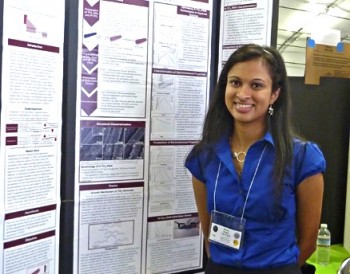
18-year old wins award for invention that could charge a smartphone in 30 seconds or less [VIDEO]
With semiconductor manufacturers pushing, not only the speed of our mobile devices with every new iteration, but their battery life as well, many Android users today are finally comfortably enjoying more than a full day’s usage from our smartphones and tablets. Still, there are a few YouTube addicts, game-oholics, or other heavy users that are still able to make short work of just about any sized battery. The problem with our current lithium ion batteries isn’t just their size (which has been growing larger to match bigger devices), it’s also how long they take to charge (especially in a pinch).
Wouldn’t it be nice if you could play Need for Speed until your battery was completely dead, find a power outlet, then fully charge your Nexus 5 in 30 seconds flat? Well, that future is looking a little bit more like reality after Eesha Khare — an 18 year old high-school student from Saratoga, California — created an energy storage project that won her the Intel Foundation Young Scientist Award of $50,000 at the Intel Science and Engineering Fair.
Eesha developed a tiny supercapcitor that is small enough to fit inside a cellphone battery and charge it fully within 30 seconds. What’s more is her tiny supercapcitor is capable of lasting 10,000 recharge cycles (as opposed to 1,000 in standard lithium ion batteries), and can easily fold, bend, or roll up, while still retaining its “electro chemical properties.” Besides just smartphones and tablets, this technology could also be applied to even higher capacity batteries like those found in automobiles.
It’s clear that with HD streaming, console quality games, and bigger HD displays, something needs to be done to make our devices more power efficient. Where we often think throwing more mAh’s at a device is the only solution, charging them quickly is a factor many of us may have overlooked. My question for you is, due to the nature of superconductors, would you accept shorter overall battery life if your device was able to fully charge in 30 seconds? Or do you find that an hour to 2+ hours charge time is acceptable if your battery can take you throughout an entire day?
[MSN News]